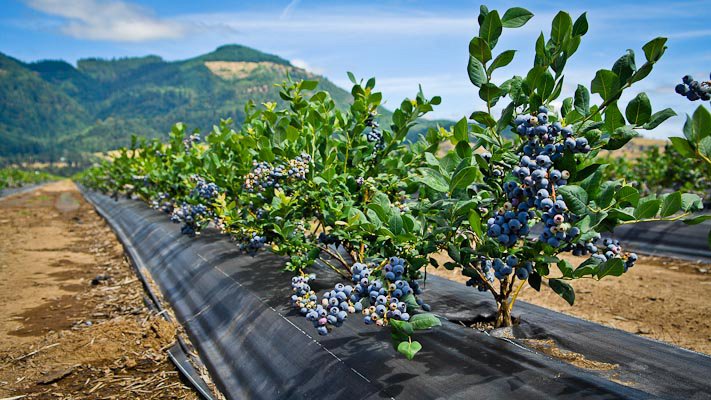By Spencer Sullivan
According to the Bureau of Labor Statistics’ consumer price index, inflation is up 8.2% from a year ago, reaching a four-decade high. With increasing production costs, inflation has especially hurt the agricultural industry, due to the time-intensive nature of growing crops in an aggressive and competitive market. Georgia’s massive agricultural industry has suffered—especially its blueberry producers. Ironically, blueberries are one of the most prodigious fruits produced in the inaptly named Peach State. Those small blue orbs yield over 120 million dollars and occupy over 18 thousand acres in Georgia. Labor and supply costs are expensive, pushing up the prices of blueberries. Because of inflation, blueberry farmers face a multitude of financial problems, with increased production and harvesting costs and a decrease in demand. To combat these rising expenditures, blueberry farmers must increase their production of blueberries—a difficult and expensive task.
Johnnie Swain, President and Founder of Swain Farms and Swain Foods, sold between 300 and 400 thousand pounds of blueberries last year. This massive haul requires careful, timely transport to consumers. According to Mr. Swain, the jump in diesel prices has increased the cost of production. Diesel is essential to blueberry harvesting—large temporary coolers powered by diesel keep the freshly harvested product cool, preventing over-ripening from exposure to the summer heat. Additionally, many haulers rely upon diesel engines to transport blueberries. Thus, harvesting the berry has become even more expensive. However, these costs are unavoidable, since without these air-conditioned trailers or trucks, the entire year’s production of blueberries would never make it to market.
However, financial problems are not limited to the end of the growing period—the whole cycle is riddled with increased expenses. Fertilizer in the past year has shot up 11% on average. Because the only way to stay ahead of rising costs is to continue to produce, reducing fertilizer is counter-productive. This vicious loop bites at the profits and wellbeing of the farmers. While fertilizer is necessary to continue with production, some farmers might stop other preventative motions. An issue with blueberry farming is its unique harvesting period from May to July. While the summer months remain consistent in temperature, the growing spring season varies widely in temperature, and could lead to some sudden extremes. Late season spring freezes are a dangerous aspect of farming. To prevent the loss of product, farmers implement overhead PVC piping freeze protection. This is extremely expensive, according to Swain, especially considering that over the course of a season, they might never be used. Insuring crop health weighs down growers’ profits. But without insurance, growers face a dangerous gamble that could lead crops exposed and ruined in an effort to cut costs.
However, this rise in costs is not proportionally realized in sales. Swain believes that the prices will actually decrease as “blueberries become a luxury that [the consumer] can do without”. Less people will be willing to pay for fruits when confronting higher rent and grocery bills. This decrease in demand, will translate into a lower market price. Even with additional cost hikes, the farmers will not regain their original profits. They are in a financial bind. Blueberry growers are pressed at every side, and the cost of production is swallowing the market cost.
Currently, Swain Farms is absorbing the blows to the profits and reaching into their coffers to ride out this hectic time, but smaller farmers do not have such luxuries. Swain sees the only way out of this mess is for markets to stabilize. He acknowledges that the “government could… give out handouts to growers, but again that’s just a band aid, not a real solution.” Instead, he is waiting in hope of “a stable economy that’s not based on the Federal Reserve printing money.” While the path of the economy is unclear, it is hoped that these delicious berry’s chaotic market will settle, leading to profits and more blueberries in the future. It is imperative that these growers remain inclined to grow, not just for their own financial gain and health of the Georgia economy, but also for consumers to continue enjoying the enchanting and unforgettable taste of blueberries.


